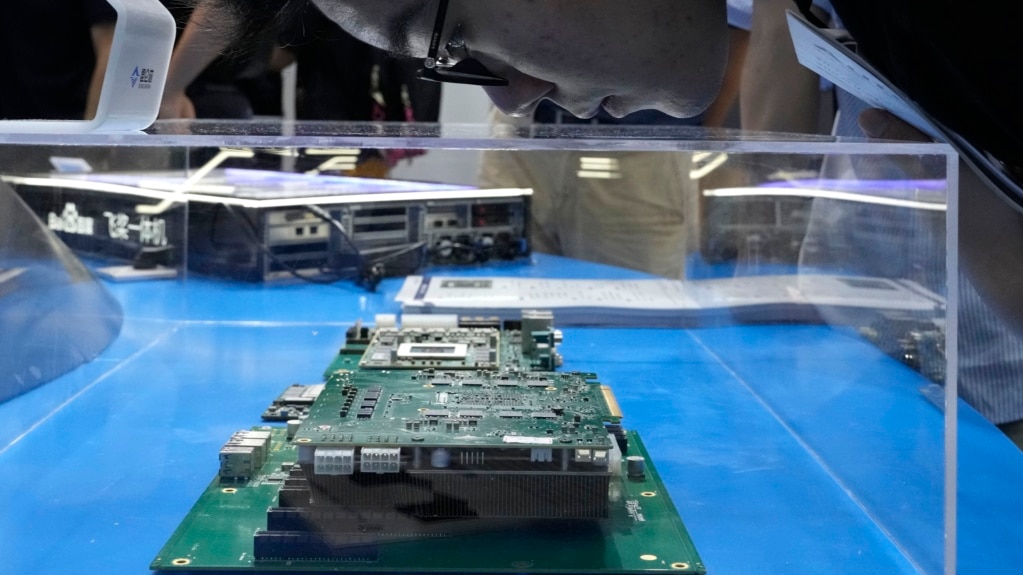Japan recently put in place export controls on the latest microchip, or semiconductor, technologies.
Observers said the move targets China.
Japan’s export controls follow other recent restrictions enforced by the United States and the Netherlands, two other major producers of the most modern semiconductors.
Japan listed 23 kinds of semiconductor technology that have export restrictions. The restrictions started July 23. They include different kinds of advanced microchip manufacturing equipment.
The controls will affect China’s ability to make advanced chips, researcher Yoshiaki Takayama of the Japan Institute for International Affairs in Tokyo said.
“The Japanese measure complements U.S.-led export control measures because the number of companies with the capacity to manufacture cutting-edge chips is extremely limited,” Takayama told VOA. He added, “The Japanese measure makes it difficult for China not only to import advanced chips, but also to manufacture them.”
He added that China appears to be starting to produce less advanced semiconductors.
Western controls
The United States banned the export of some advanced microchips and semiconductor manufacturing technology to China in October and urged Western allies to do the same. The Netherlands is another important producer of semiconductors. That country enforced similar measures in June. Taiwan has also promised to support the U.S. policy.
The U.S. says it wants to prevent China from using the technology for military purposes.
The Group of Seven large economic powers discussed the issue at its meeting in Japan in May. The allies agreed on the need to “de-risk” from possible Chinese economic coercion. Members said they want to avoid becoming dependent on China for semiconductor technologies.
These combined measures will severely affect China’s ability to keep up with Western technology, Takayama said. It will hurt China’s ability to manufacture state-of-the-art semiconductors and increase its manufacturing capacity.
“Unlike the traditional mechanical technology industries, where reverse engineering has produced important technological learnings, reverse engineering does not produce useful knowledge in the semiconductor manufacturing sector,” Takayama said.
He said that today’s scientific progress is largely the result of big data research and computer technology rather than repeated trial and error. And he added that it seems that China, with limited availability of the latest semiconductors, could fall behind in scientific and technological research and development.
Unlike the United States and the Netherlands, Japan did not name China as the target of its export restrictions. The restrictions affect 160 countries. However, China still reacted angrily.
Researchers say it is important that Western allies work together on their export controls. The U.S. is expected to update its list of banned semiconductor technologies soon.
China’s response
In a retaliatory move, China banned the import of semiconductors from the American company Micron in May. Chinese officials said the ban was over national security concerns. Takayama said some companies in Japan fear China will seek to restrict their imports.
China has additionally threatened to restrict exports of two important metals in the production of semiconductors: gallium and germanium.
China’s move seems to be in response to the U.S. Chips Act and the increasing pressure on U.S. allies to restrict sales of microchip technology.
I’m Gregory Stachel.

